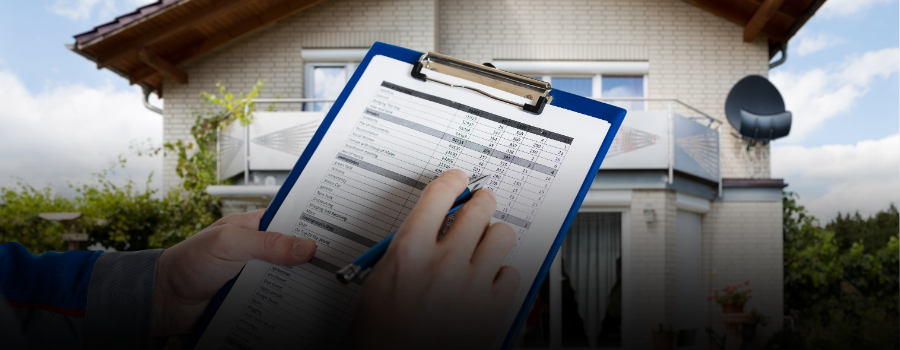Buying your first home is an exciting milestone, but it also comes with its fair share of questions and concerns. One critical step in the home-buying process is the home inspection, which helps ensure the property you’re investing in is in good condition and free of major issues.
As a first-time buyer, you might be wondering: What exactly happens during a home inspection? What should I be looking for? And how do I use the results to make an informed decision?
Hi, I’m Rozi Dover, your local real estate expert, and I’m here to guide you through the home inspection process so you can navigate it with confidence. Let’s break down what to expect during a home inspection and how it impacts your home-buying journey.
1. What Is a Home Inspection?
A home inspection is a professional assessment of a property’s condition, conducted by a licensed home inspector. This step typically happens after your offer has been accepted but before the sale is finalized. The goal is to identify any potential issues with the property and give you a clearer picture of its overall condition.
What a home inspection covers:
-
Structural elements: Foundation, walls, and roof.
-
Major systems: Plumbing, electrical, HVAC (heating, ventilation, and air conditioning).
-
Exterior: Windows, doors, siding, and gutters.
-
Interior: Flooring, walls, ceilings, and insulation.
-
Safety concerns: Smoke detectors, carbon monoxide detectors, and signs of mold or asbestos.
2. Scheduling the Inspection
Once your offer is accepted, you’ll need to schedule the home inspection. Your real estate agent (that’s me!) can recommend reputable local inspectors with experience in the Auburn and Opelika markets.
Tips for scheduling your inspection:
-
Act quickly: Schedule the inspection as soon as possible to stay within your contingency period.
-
Plan to attend: While it’s not required, attending the inspection allows you to ask questions and see the inspector’s findings firsthand.
Most inspections take about 2-3 hours, depending on the size and condition of the property.
3. What Happens During the Inspection?
On inspection day, the inspector will thoroughly examine the property from top to bottom, inside and out. They’ll take notes, photos, and measurements to document their findings.
Here’s what you can expect:
-
Exterior inspection: The inspector will start outside, checking the foundation, roof, gutters, and siding for signs of damage or wear.
-
Interior inspection: Inside the home, they’ll assess the HVAC system, electrical wiring, plumbing, and overall structural integrity.
-
Appliance checks: If included in the sale, appliances like the stove, dishwasher, and refrigerator will be tested.
Inspectors won’t typically evaluate cosmetic issues like paint or minor dings but will focus on major systems and potential safety hazards.
4. Reviewing the Inspection Report
After the inspection, the inspector will provide a detailed inspection report outlining their findings. This report will include:
-
A summary of the property’s condition.
-
Photos of any issues found.
-
Recommendations for repairs or further evaluations.
How to use the report:
-
Prioritize repairs: Focus on significant issues like roof leaks, foundation cracks, or electrical hazards.
-
Negotiate with the seller: You may be able to ask the seller to make repairs, lower the price, or offer a credit at closing based on the inspection findings.
-
Decide whether to proceed: If the report reveals major issues that the seller won’t address, you’ll need to decide if you’re comfortable moving forward with the purchase.
5. What the Inspector Won’t Do
It’s important to understand the limitations of a home inspection. Inspectors aren’t specialists, so while they can identify issues, they may recommend further evaluation by a licensed contractor or engineer for certain problems.
What’s typically excluded:
-
Hidden or inaccessible areas: Inspectors won’t move furniture or open walls.
-
Pest inspections: Termite or rodent inspections often require a separate specialist.
-
Detailed estimates: Inspectors can flag problems but won’t provide detailed repair costs.
For specialized concerns, like mold or radon testing, you may need to hire additional experts.
6. Common Issues Found in Inspections
Don’t panic if the inspection report lists several issues—it’s normal, especially for older homes. Some common findings include:
-
Minor plumbing leaks.
-
Outdated electrical panels.
-
Roofing issues, such as missing shingles.
-
HVAC system maintenance needs.
Many of these issues are manageable and can be addressed through negotiation or repairs after closing.
7. Your Next Steps After the Inspection
Once you have the inspection report, it’s time to decide how to proceed.
Your options:
-
Accept the property as-is: If the issues are minor, you may choose to move forward without requesting changes.
-
Negotiate with the seller: Work with your agent to request repairs, a price reduction, or closing cost credits to address the issues.
-
Walk away: If the issues are too extensive and the seller won’t compromise, you may decide to terminate the contract (if you’re within your inspection contingency).
Remember, your agent will guide you through this process to ensure your interests are protected.
Why a Home Inspection Matters
For first-time buyers, a home inspection is an invaluable tool for making an informed decision. It helps you:
-
Understand the true condition of the property.
-
Avoid unexpected repair costs after closing.
-
Feel confident in your investment.
Ready to Buy Your First Home in Auburn or Opelika?
Navigating the home inspection process can feel overwhelming, but with the right guidance, it becomes a valuable part of finding your dream home. Feel free to reach out to me for further assistance—I’ll help you through every step of the home-buying journey and ensure you’re confident in your decision.
Rozi Dover
Your Trusted Real Estate Expert in Auburn and Opelika, Alabama
Phone: +13346630077
Email: rozi@mindspring.com
Website: www.auburn-opelikahomes.com


Leave A Comment